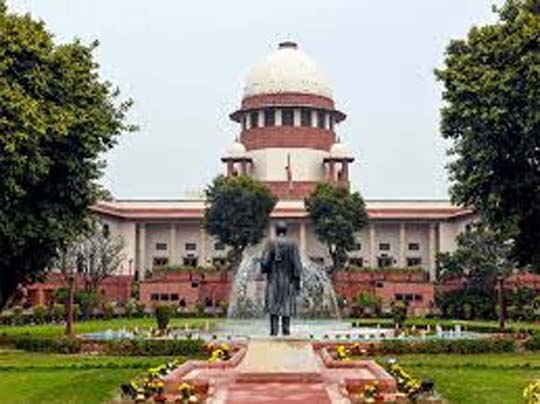In the legal arena, the Supreme Court admonished both the Union and various state administrations against treating litigation as a mere contest, noting an increasing influx of cases reaching its apex. This admonition arose during a hearing on the Karnataka government’s petition seeking Rs 35,162 crore from the Union for drought relief.
At the commencement, Solicitor General Tushar Mehta, representing the Union, opined that resorting to litigation by the state was unnecessary and that a resolution could have been sought at a different level. “Do these exchanges truly resolve the underlying issues?” inquired a bench comprising justices BR Gavai and Sandeep Mehta. Justice Gavai expressed the court’s observation of a surge in state governments resorting to litigation. Mehta refrained from delving into the reasons behind this trend, indicating a growing concern that necessitates addressing.
The bench expressed hope that Mehta’s intervention would curb this trend. Mehta urged the court to defer the matter by two weeks for further consideration. Senior advocate Kapil Sibal, representing the Karnataka government, pointed out that as per the law, the issue should have been resolved within a month, which had lapsed by December 2023. “The law stands firm, and let us refrain from engaging in disputes,” remarked Sibal.
Following a brief deliberation, the bench decided to issue a notice regarding Karnataka government’s petition. However, Mehta implored the court not to do so, stating, “We are present here.” Attorney General R Venkataramani, representing the Union, assured, “We shall return with a response.”
“The Solicitor General, appearing on prior notification, asserts their intent to seek guidance on the matter,” noted the apex court in its order. Mehta affirmed his commitment to seek guidance and provide a response. The bench accepted Mehta’s assurance and scheduled further proceedings for two weeks later.
The Karnataka government’s plea contended that the Central Government’s denial of financial aid to the state violated the fundamental rights enshrined in Articles 14 and 21 of the Indian Constitution.
“Moreover, the Central Government’s actions contravene the statutory framework of the Disaster Management Act, 2005, as well as the guidelines outlined for the administration of the State Disaster Response Fund and the National Disaster Response Fund,” the plea asserted.
The Congress-led government highlighted the failure of the Ministry of Home Affairs to make a definitive decision and release funds from the National Disaster Response Fund (NDRF) for drought relief, despite six months elapsing since the submission of a report by the Inter-Ministerial Central Team (IMCT).
The plea emphasized the severe drought conditions in Karnataka, affecting numerous lives. “For the Kharif 2023 season, 223 out of 236 taluks were declared drought-affected, with 196 taluks categorized as severely affected and the remaining 27 as moderately affected,” it stated.
The plea underscored the doctrine of parens patriae, which recognizes the state as the guardian of its citizens, particularly when citizens are unable to safeguard themselves. It highlighted agriculture as a primary livelihood source for a significant portion of the state’s populace, stating that the current drought had caused crop damage, impacted livestock, and led to lower yields and increased food prices, thereby affecting the state’s economy.
The state government argued that the Ministry of Home Affairs had excessively delayed convening a high-level committee meeting to determine the quantum of relief from the NDRF.
Advocate D L Chidananda, representing the plea, contended that the Central Government’s failure to release financial assistance for drought mitigation from the National Disaster Response Fund (NDRF) was inherently unlawful, arbitrary, and infringed upon the fundamental rights guaranteed to its citizens under Articles 14 and 21 of the Constitution.









